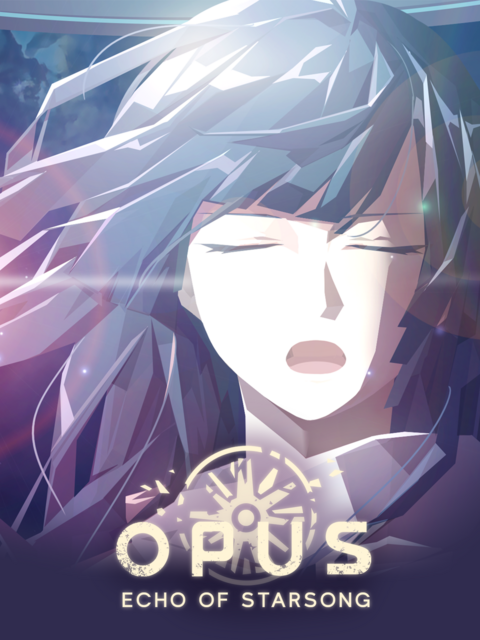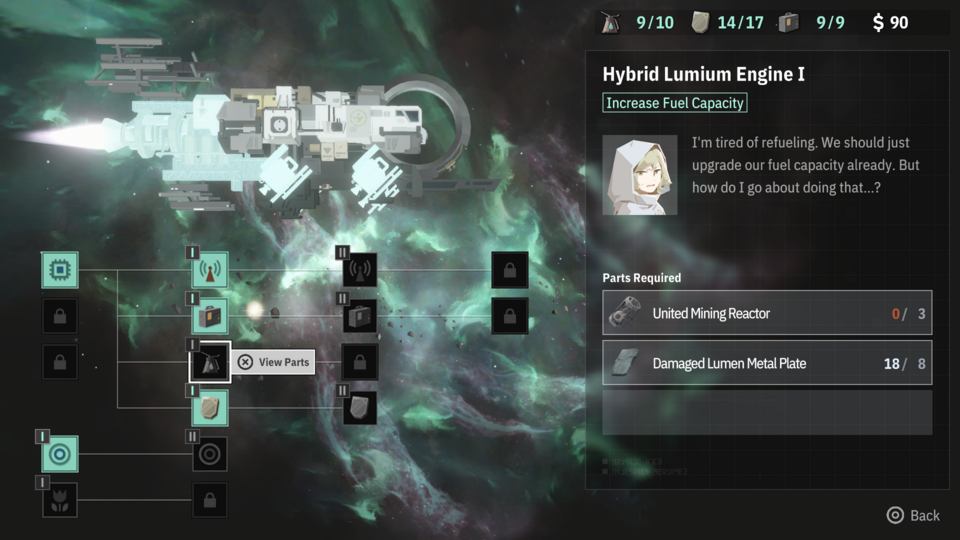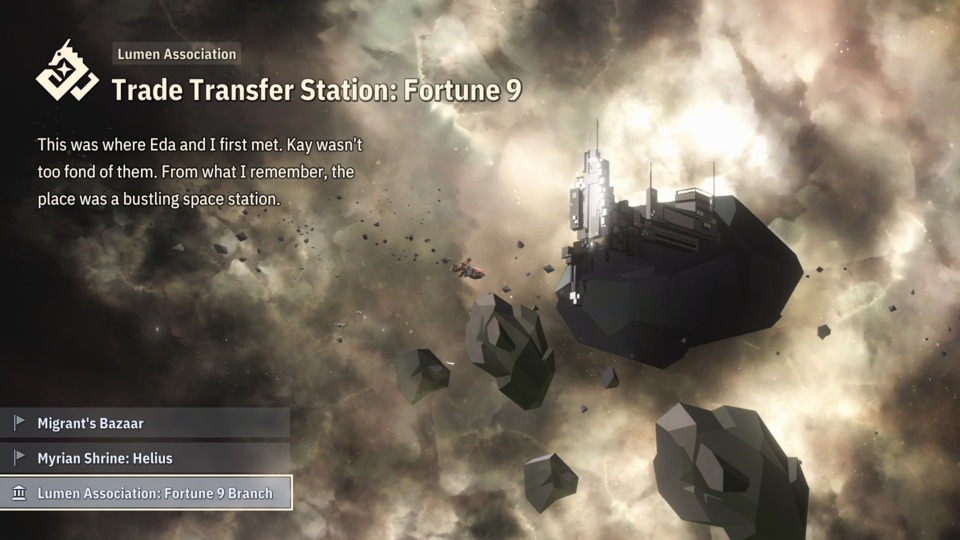Indie Game of the Week 302: Opus: Echo of Starsong
By Mento 3 Comments

Continuing to plumb Game Pass of all its treasures before my free trial wears out, I was pleasantly surprised to find the third and (so far) final game in Sigono's Opus (or OPUS) series of adventure games with what I'd call some relatively casual gameplay affectations to break up the dialogue and worldbuilding. I have, of course, covered both the previous games in this series albeit in reverse order—Opus: The Day We Found Earth (IGotW #251) was the first and Opus: Rocket of Whispers (IGotW #235) was the second—so I'm glad I could add another to this feature because these games deserve the shout outs.
Opus: Echo of Starsong might be considered the Opus franchise's spin on a FTL: Faster Than Light or Sunless Sea-style survival RPG, one where difficult decisions matter and resources need to be jealously guarded and judiciously applied until an opportunity to restock comes along. It concerns the efforts of a ragtag team of scavengers and explorers in a quadrant in space called the Thousand Peaks, the population of which is slowly recovering from a devastating internecine war between various well-funded corporate prospectors and noble houses who set out there to prospect and excavate lumen: an energy resource found naturally in certain asteroids that were once home to an advanced ancient tribe of spacefaring people. Given the resentment and mistrust all around since the war ended and the heavy regulation of these lumen asteroids, an independent outfit looking to profit from exploring same runs into no shortage of trouble. What's worse is that your crew has both a noble from the East Ocean star system—the scheming clans of which were early instigators of the war, as well as one of the earliest to capitulate and abandon their local supporters—and one of the witches used to hunt lumen through their "starsong" that the winning coalition, United Mining, used to create an advantage for themselves and then quickly scapegoated once the war was through: in short, few people seem to like either of you, making it that much harder to build the reputation and connections you'll need to make valuable discoveries.

The storytelling, as has been the case in every Opus game, is already rich when it comes to the main plot and its delivery alone though it grows ever more elaborate through a magnitude of optional lore drops. One of the game's major collectibles are memories: these include pivotal moments in the story which are logged automatically but also include items you can sell, items you can use to upgrade your ship ("The Red Chamber"; which I think makes this game the first to reference the Dream of the Red Chamber, the only one of the four classics of Chinese literature to not see a dozen video game adaptations*), and the various murals and other iconography you might find on the walls while exploring the interiors of lumen asteroids. I don't imagine I'll find them all in one run, however, and that's due to the game sticking to the FTL blueprint a little too closely for my FOMO-impaired liking: many actions, especially those that carry some risk, require a dice roll from you. The success or failure of these rolls are, of course, pure luck; you can improve your odds a little with certain rare items that offer a permanent boost to your roll but most of the time you simply have to accept the results of a botched attempt (the game autosaves constantly) and potentially miss out on rewards (including unique memories) or even take some damage.
Your ship has three resources to keep track of: the armor plates, which you need to survive and which are reduced upon getting attacked; fuel, which as you can imagine is kinda important for getting to places; and exploration kits, which you burn off whenever you explore a region of space in an EVA suit. All can be restocked at most major stations, it's simply a matter of stretching the ones you have as far as they'll go between these R&R stops or holding off on buying more in case you find replacements while exploring (fuel's a pretty common find, but not common enough that you should neglect keeping your tank full whenever you reach a safe haven). If you've been particularly frugal with your cash and resource management, you might even be able to purchase some special items once they appear for sale or else have a buffer that allows for more mistakes. Given the game's gentler approach to this genre you'll never find yourself in a situation similar to a space trader sim where you might have to take on odd jobs, ferry around goods around, or go asteroid mining for a spell to build up the capital and resources you'll need to resume the story: if you prefer, you could probably make a beeline from one story beat to the next if you don't want to engage with the more mechanical aspects of the game as much, though it wouldn't hurt to do so to keep your funds up and keep out of danger.

The Opus series tends to take gameplay models seen in other games and genres and simplify them for the sake of being able to focus on the central story they want to convey without sidetracking the player with too many gameplay systems and the like. The same is true here: the resource management, random rolls, and checking out spots off the beaten starpath while travelling the cosmos are largely superficial in nature and don't demand a whole lot of out of you skill- or judgement-wise. I mentioned FTL but there's no direct combat like in that game—a bad encounter with pirates will ding you a pre-determined amount of armor and that's that, unless you roll the dice on the riskier option to scare them off with a bluff or sneak away undetected—and even with consecutive failures it would be very difficult to put yourself in a position where you'd be unable to continue, unlike FTL where a sudden game over is an ever-present threat. However, I think that softer approach adds to the charm of these games; they don't throw in these gameplay features for the sake of a challenge but do so as a means of giving the games a bit more variety and player agency as they spin their yarns, sort of like the drink mixing mini-games of VA-11 Hall-A. The more relaxed attitude makes it easier to enjoy these stories in turn.
Echo of Starsong presents, at least for me personally, an odd situation where the gameplay framing device is probably my least favorite of the three Opus games so far (mostly because of the decisions and previously discussed FOMO) while also being the strongest in terms of its worldbuilding and narrative, using an in media res device to establish what feels like a slowly developing and doomed to tragedy romantic entanglement between its two protagonists stuck working together to survive a hostile universe. It feels like every successive Sigono game has grown more confident, larger, and more elaborate and it makes me all the more excited to see what they do next. (Speaking of which, their upcoming game Opus: Prism Peak looks to be another choices-dependent game with a photography angle, so that certainly sounds intriguing. Could always use more photography games.)

*The others, for those wondering or don't feel like opening Google, are Water Margin (the basis for the Suikoden franchise), Journey to the West (Enslaved: Odyssey to the West as well as countless others) and Romance of the Three Kingdoms (probably don't need my help figuring out which games are based on that).
Rating: 4 out of 5.
Post-Playthrough Edit: Man, that mild ambivalence lasted right until the end. Upon turning my ship into a wreck after failing a bizarrely difficult debris evasion mini-game one too many times (or at least failing to perfect it, which is the same thing for achievement nuts) the game then turned me into an emotional wreck with that ending. I'm not going to be histrionic and say I spent the next hour in the fetal position or anything but it's the most I've been moved by a video game's conclusion since, hmm... maybe my Rakuen playthrough in 2018? You sort of know where it's heading with that in media res device, but all the same it hits you like a piece of comet rock. Nope, wait, that's the mini-game again. Either way, another excellent story that made the so-so (all right, "so-so plus") gameplay worth pushing through to the end.
| < Back to 301: Psychonauts 2 | 001-100 | 101-200 | 201-300 | > Forward to 303: The Gunk |
